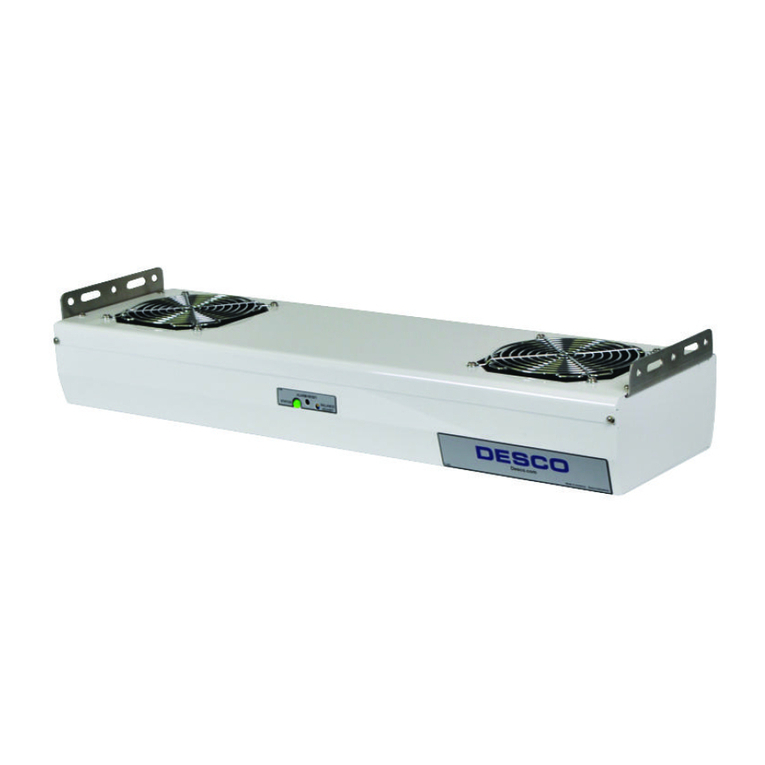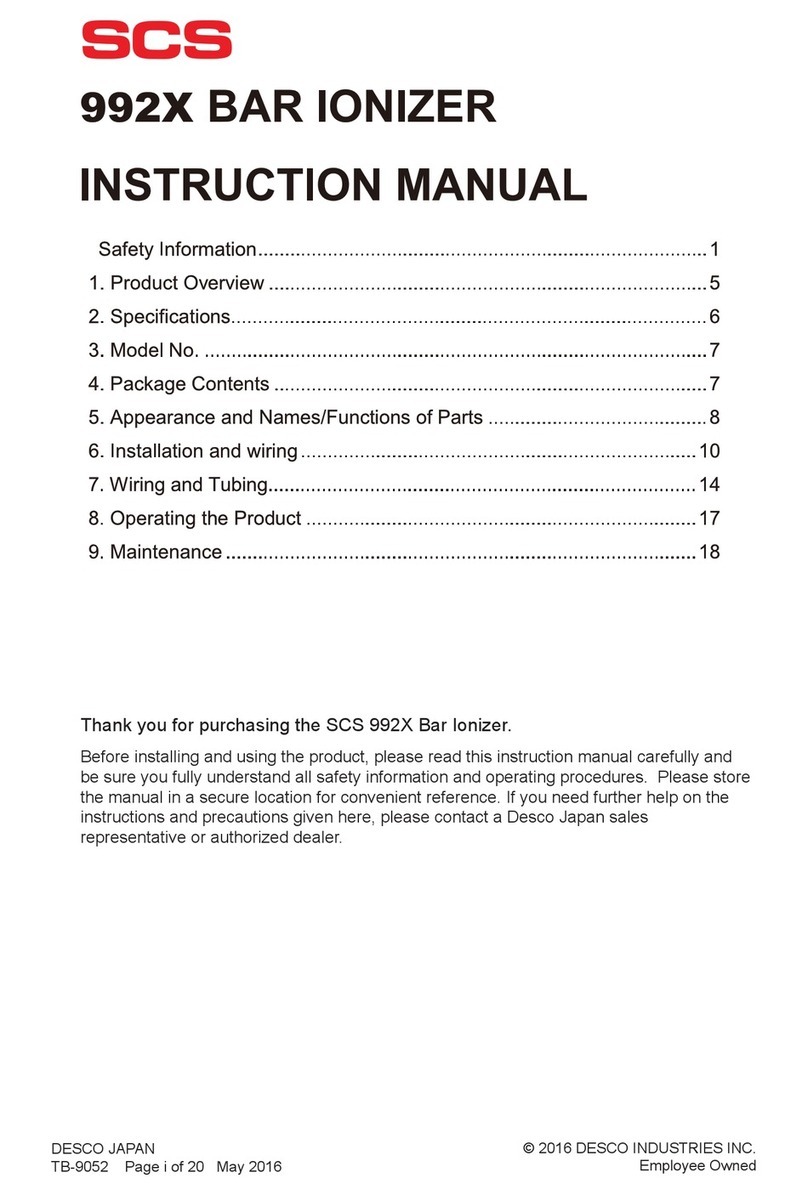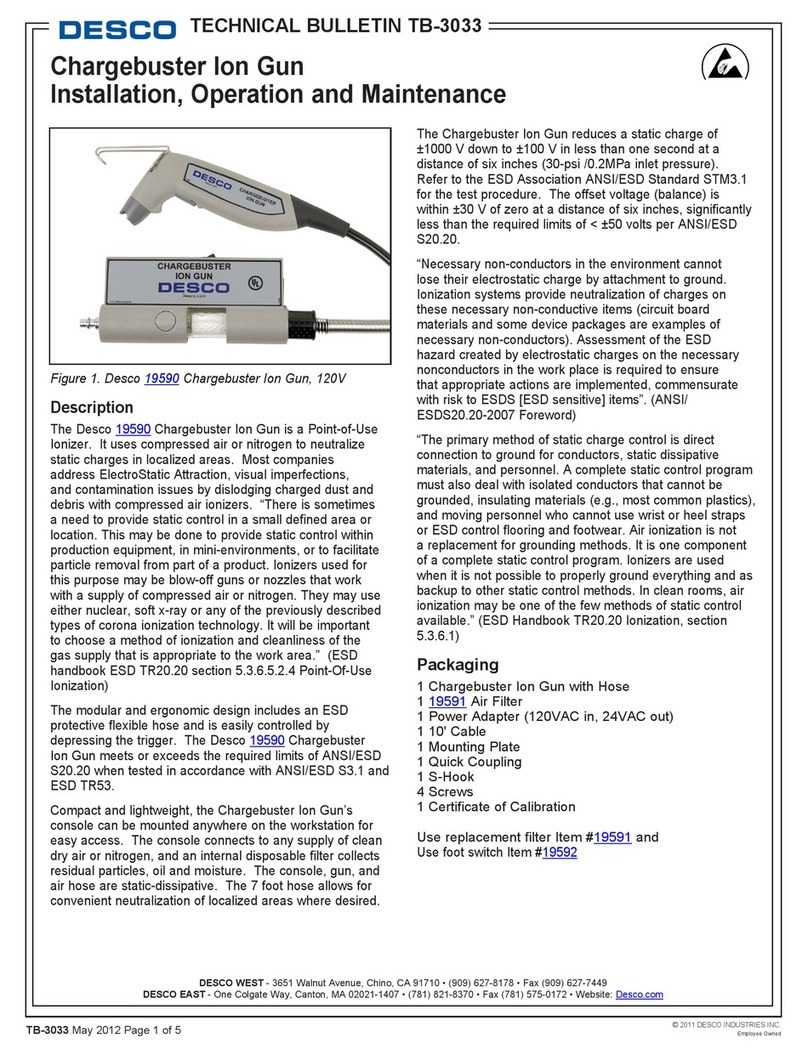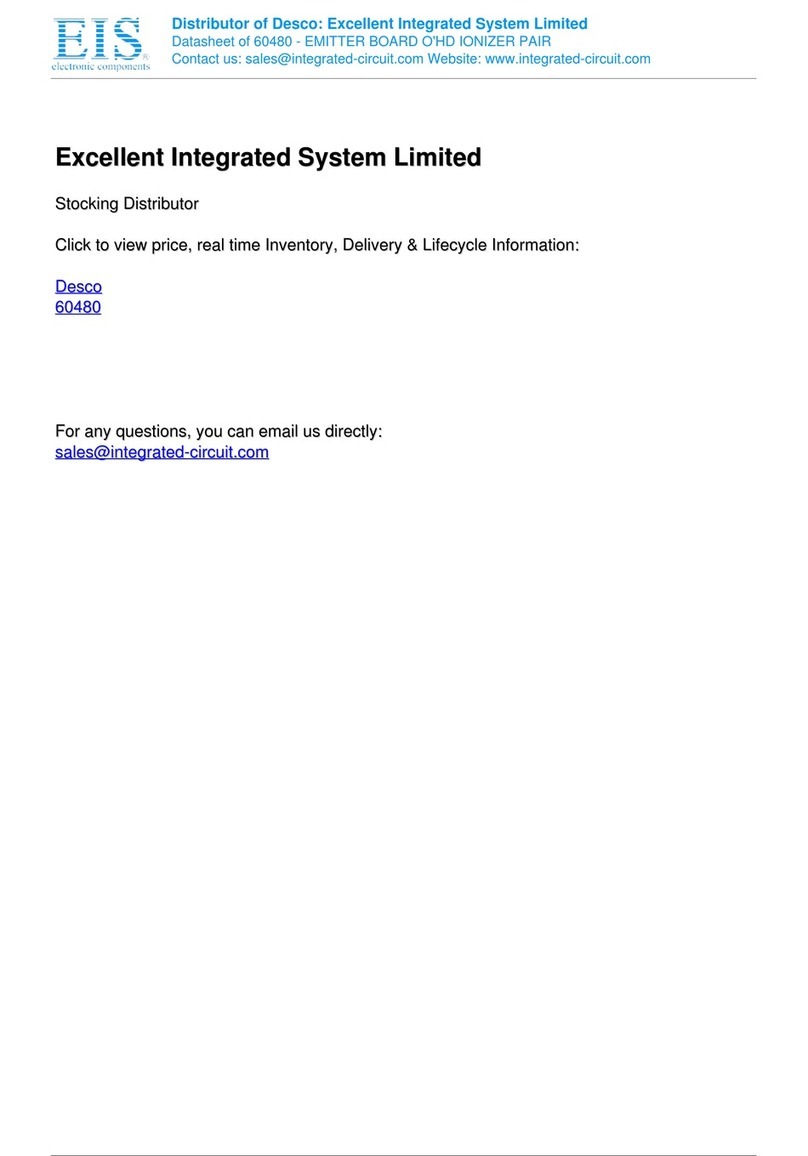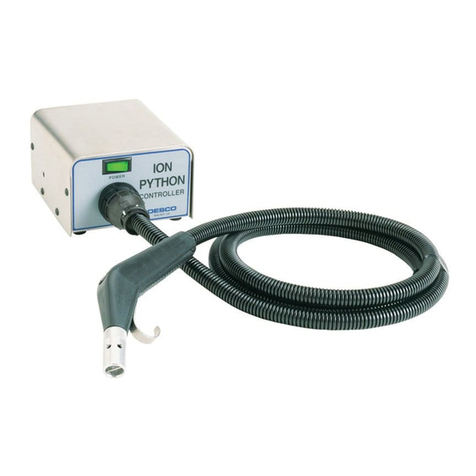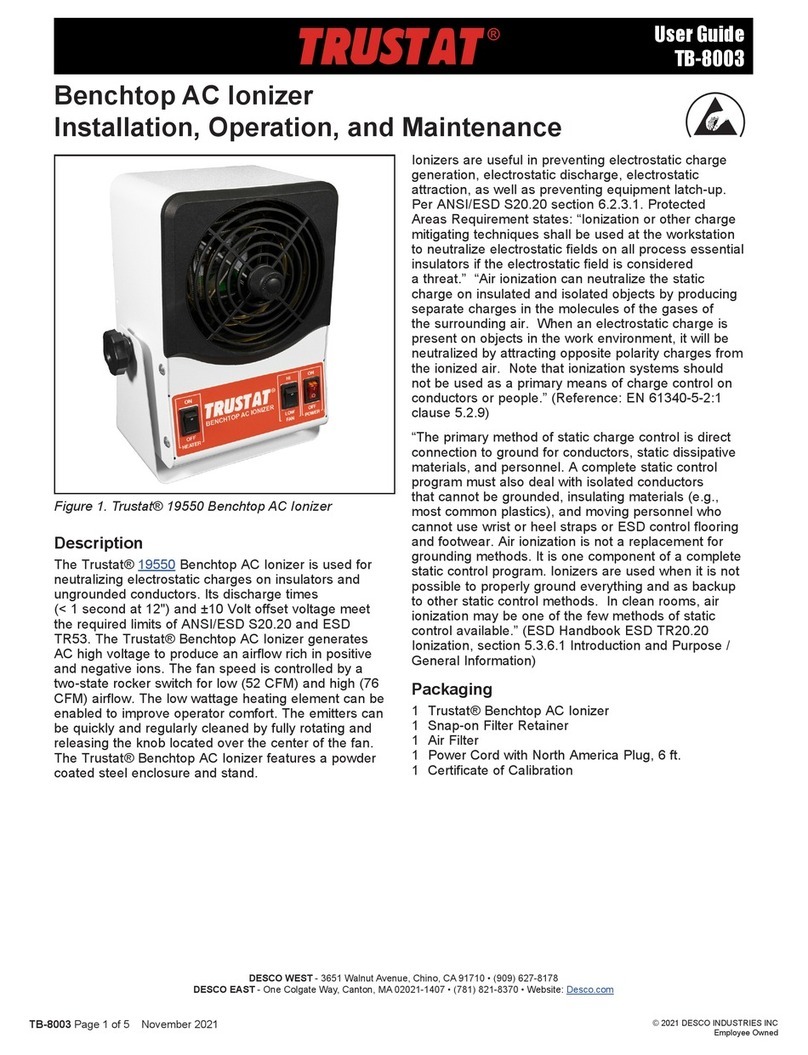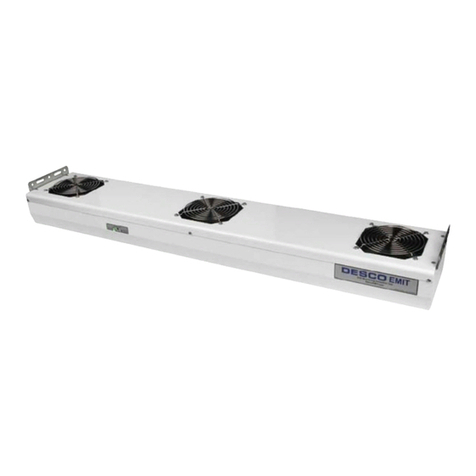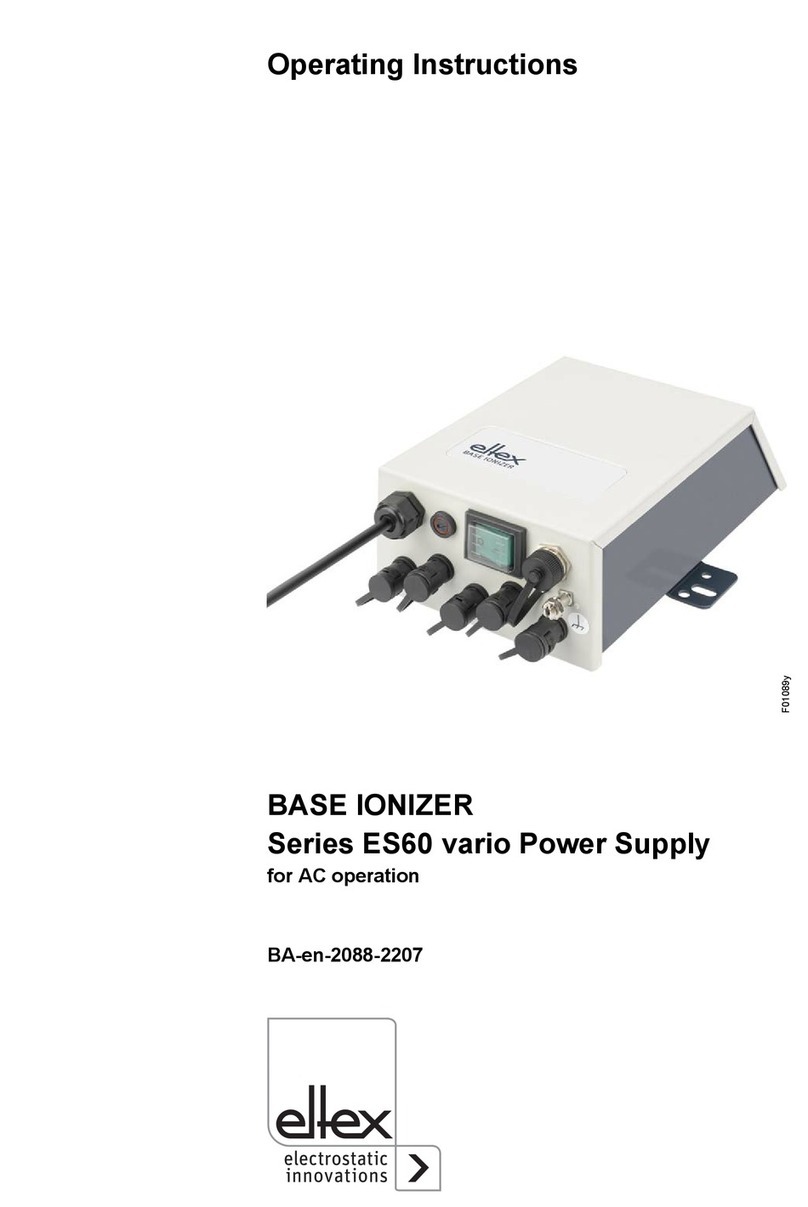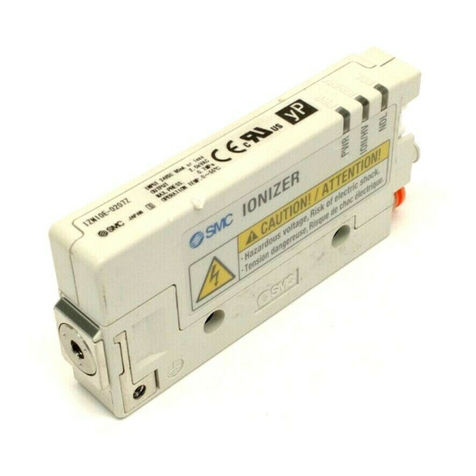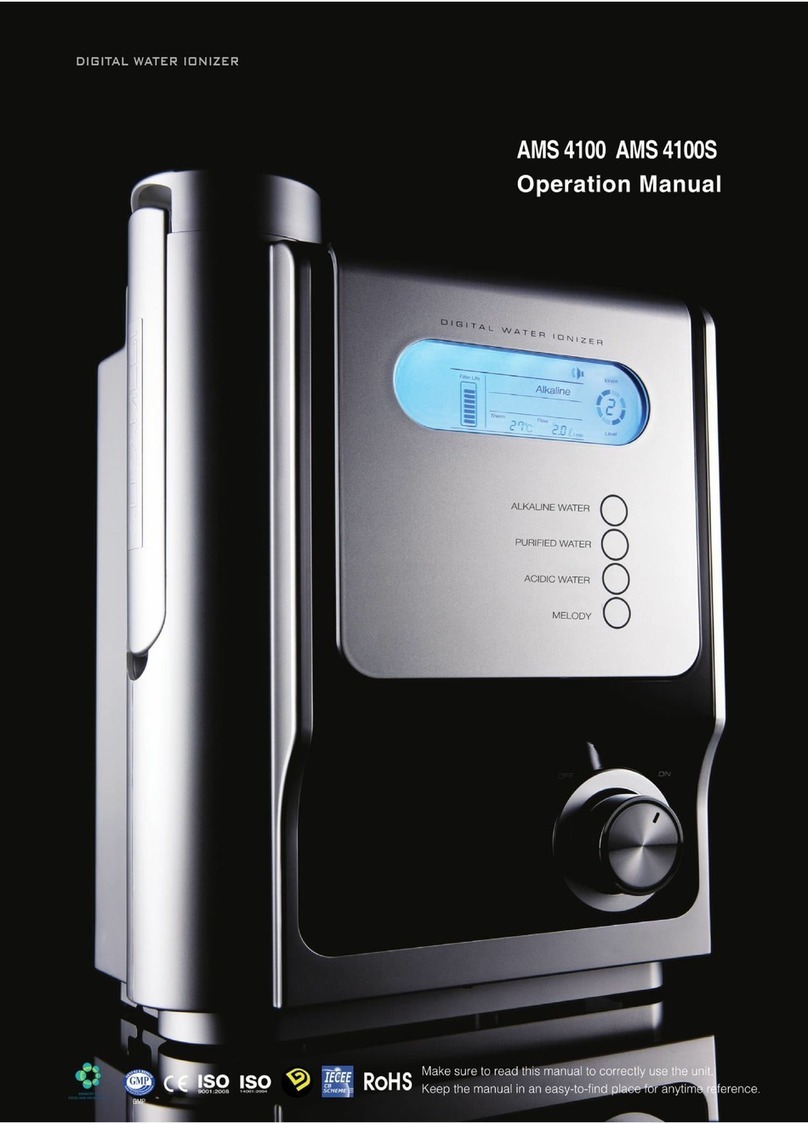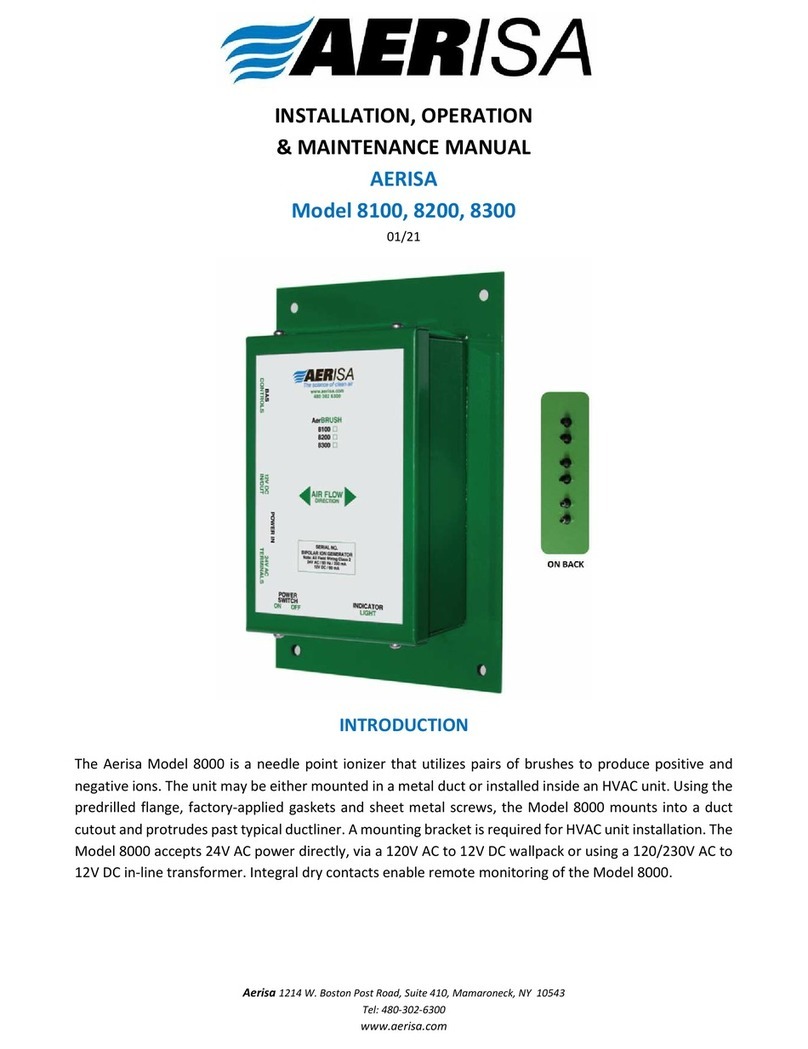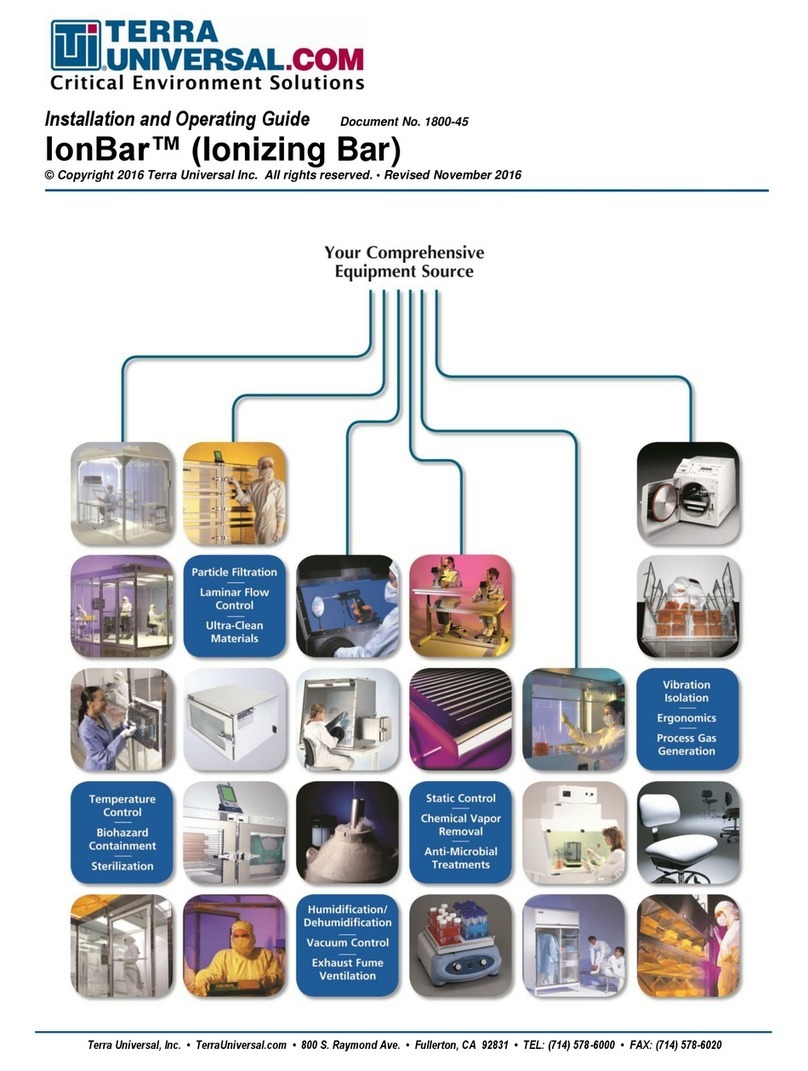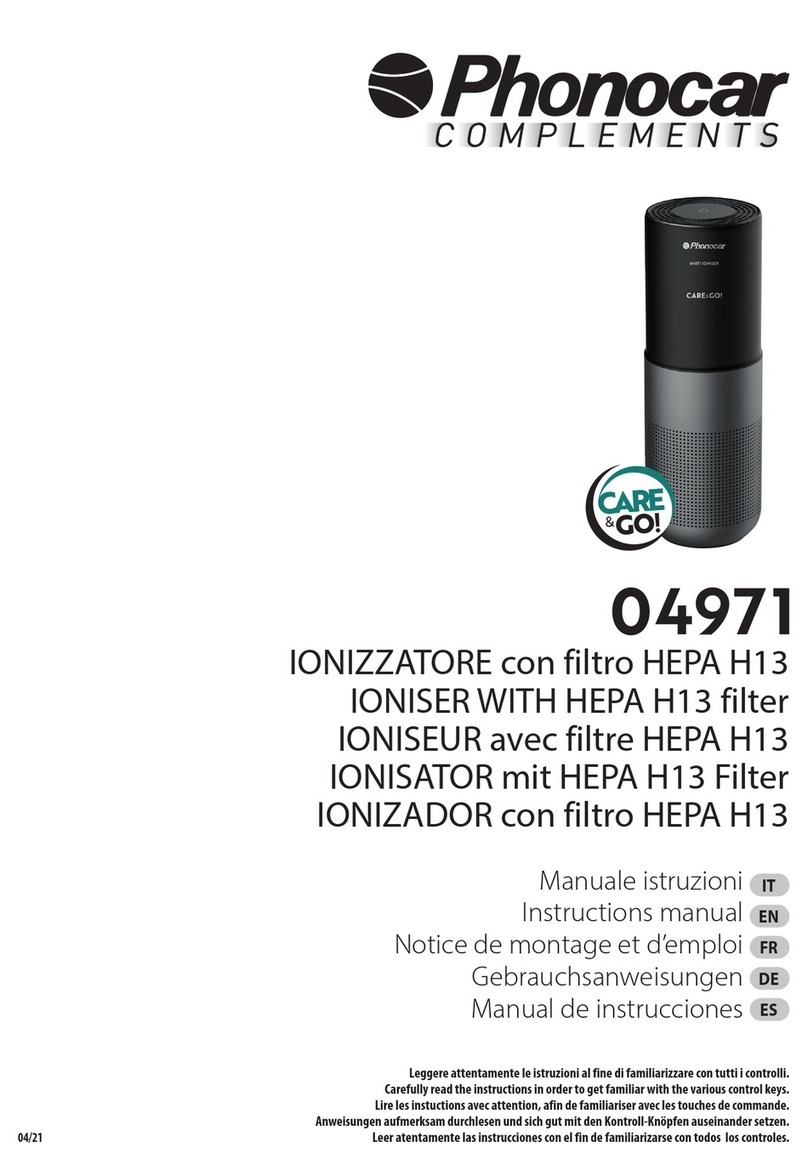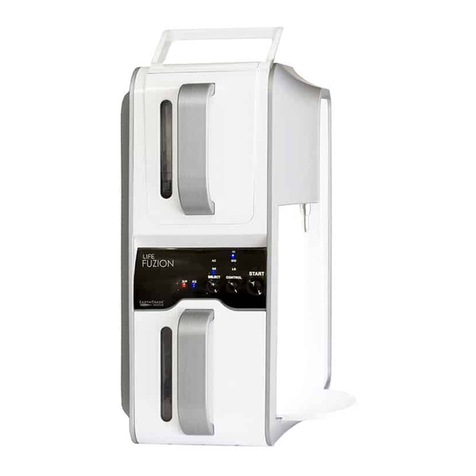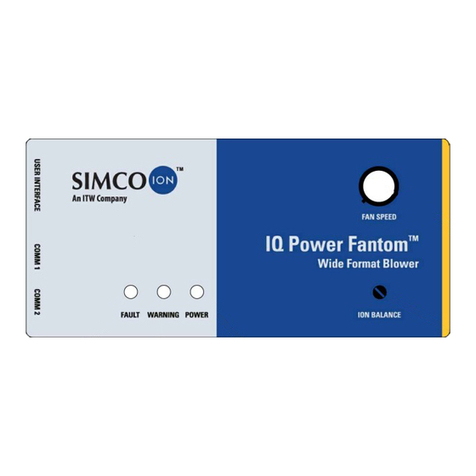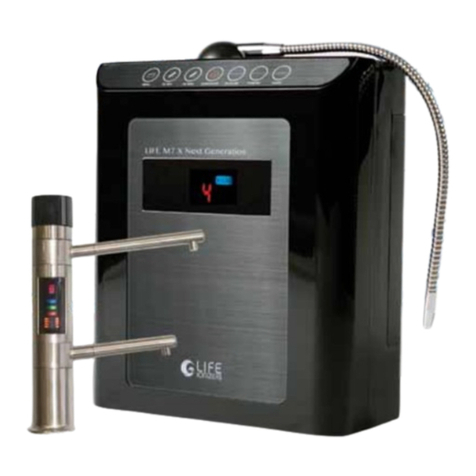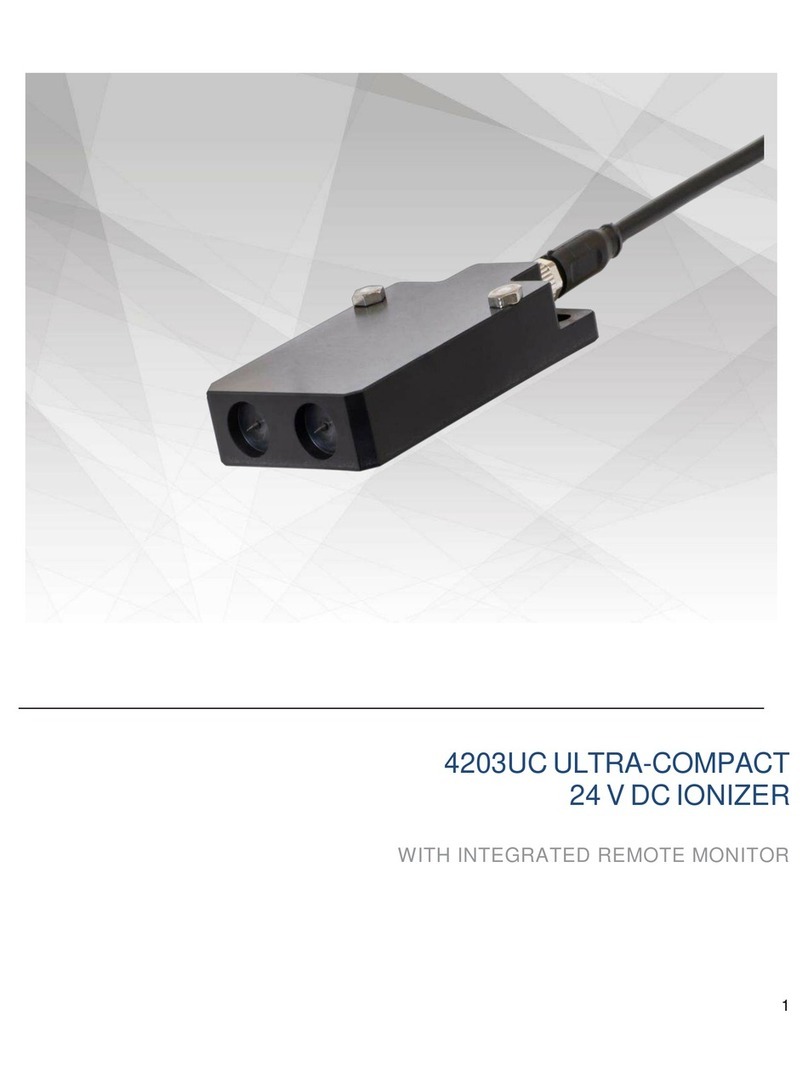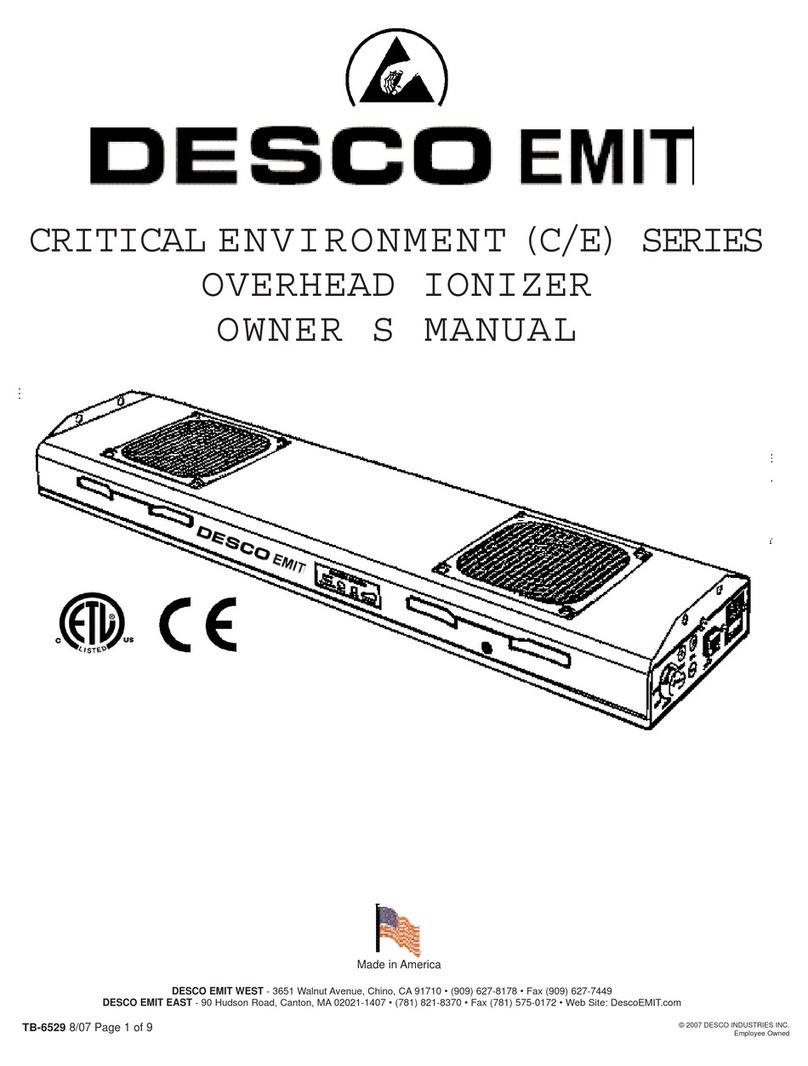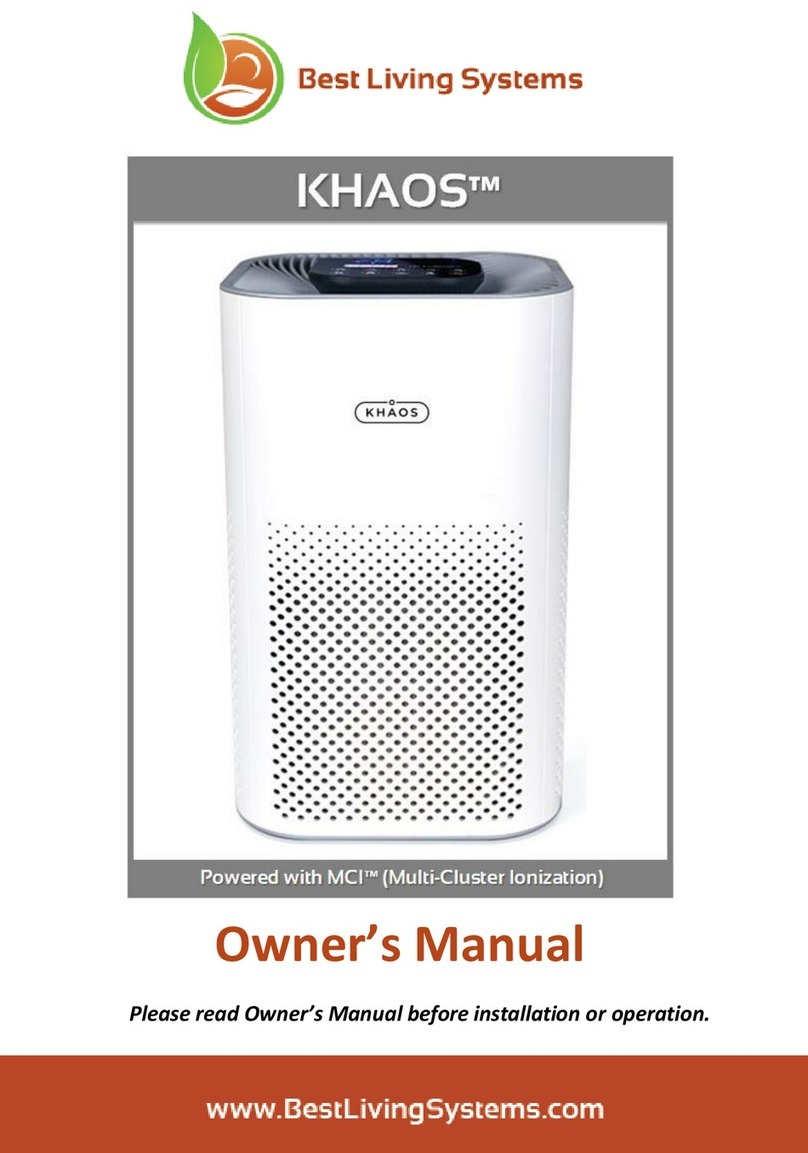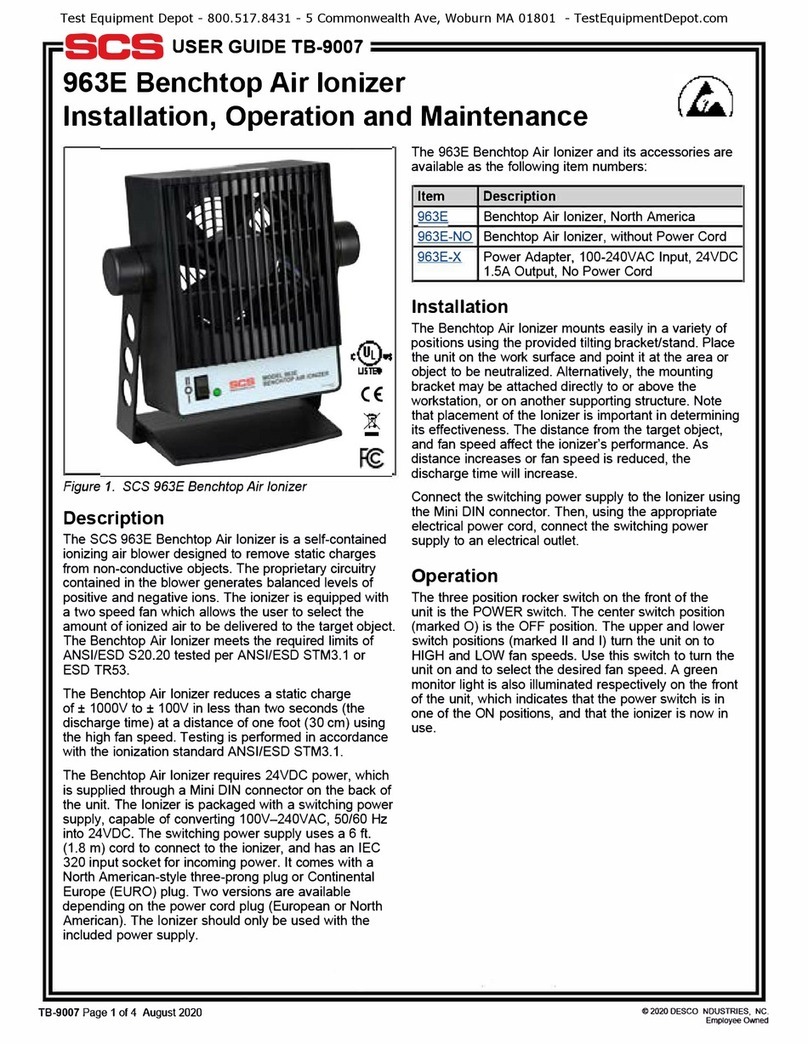TB-2016 Page 2 of 4
Figure 3. Wall or shelf mounting of the ionizer.
Mount the unit in the desired position. You can bolt the
stand to a wall or under a shelf as desired. For best results,
the unit should be mounted so that no obstructions exist
between the output area and the area to be neutralized.
Set both front panel rocker switches in the “off” position.
Connect the IEC plug into the connector on the back panel
of the ionizer, press firmly to ensure that the cord is
properly attached. Install the power cord into a properly
grounded outlet. The bench top ionizer must be grounded
for proper operation. We recommend Item #98130 to check
ground point.
Operation
Turn on the power switch and adjust fan speed for the
desired air flow. Higher air flow will result in a faster
neutralization rate.
Aim the unit so that the maximum airflow is directed at the
items or area to be neutralized.
The left rocker switch turns on a heater which will raise the
temperature of the output air to about 10°F above ambient.
The heater is only to offset the chill factor of the moving air.
It is not intended to warm the workstation.
If the ionizer is used in a manner not specified by the
manufacturer, the protection provided by the ionizer
may be impaired.
Maintenance
"As with all ionizers, periodic maintenance will be needed to
provide optimum performance." (Reference: IEC 61340-5-
2:1paragraph 5.2.9).
The frequency of monitoring ionizers really depends on how
and where they are used. Since the majority of them use a
fan to transport the ions to the working area, the cleanliness
of the air directly affects their performance over time and
how often the emitters should be cleaned.
EIA-625 recommends checking ionizers every 6 months,
but this may not be suitable for many programs particularly
since an out-of-balance may exist for months before it is
checked again. ANSI/ESD S20.20 paragraph 6.1.3.1
Compliance Verification Plan Requirement states: "Test
equipment shall be selected to make measurements of
appropriate properties of the technical requirements that are
incorporated into the ESD program plan." And paragraph
6.1.3.2. Compliance Verification Plan Guidance states: "In
addition to internal audits, external audits (Organization and
supplier of ESDS items) should be performed to ensure
compliance with planned requirements. Verifications should
include routine checks of the Technical Requirements in the
Plan. The frequency of verification checks should be based
on the control item usage, its durability and associated risk
of failure."
Under normal conditions, the ionizer will attract and
accumulate dirt and dust (especially on the emitter
electrodes). To maintain optimum performance, cleaning
must be performed on a regular basis. The electrodes
should be cleaned at least as often as indicated in the next
section. However, more frequent cleaning may be required
if used in environments with more contaminants.
METHOD 1 (At least every 6 months)
The Bench Top Ionizer comes with an easy-cleaning brush
which should be stored in a convenient location. It is
important to disconnect power to the ionizer. Then slide
the brush through the grill and across the electrodes
several times to remove the dirt and dust.
Figure 4. Cleaning the electrodes (Method 1).
METHOD 2 (Annually)
To remove heavier accumulations of dirt and dust, use
clean, compressed air. Disconnect power to the ionizer. With
one hand firmly on top of the ionizer, aim compressed air
through the front grill, directly at pins. A few passes back
and forth with the nozzle is sufficient.
Figure 5. Cleaning the electrodes (Method 2).
© 2008 DESCO INDUSTRIES INC.
Employee Owned
